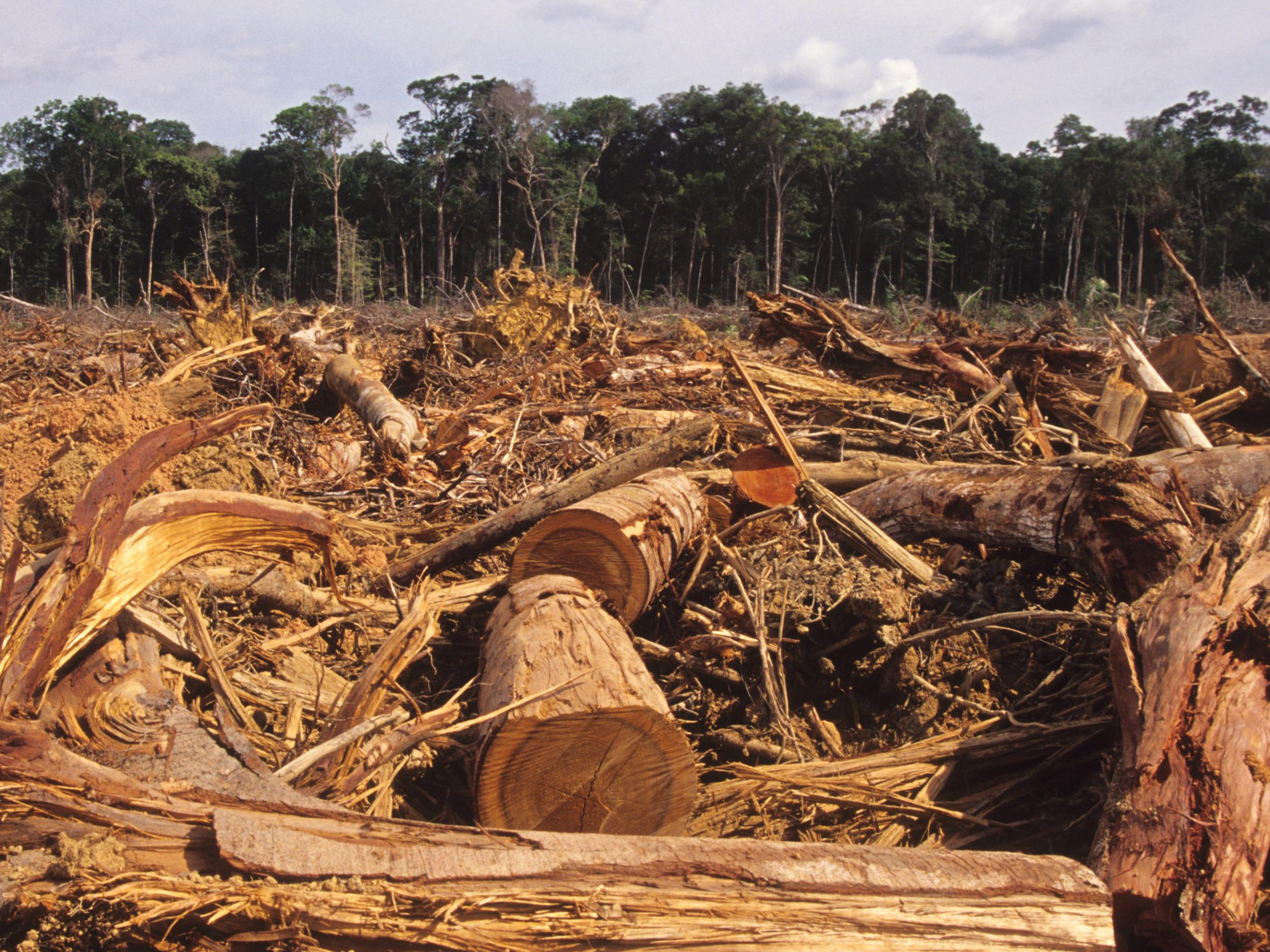Amazon deforestation has surged to a 12-year high – this is how to make a difference, wherever you are
This nightmare can often seem a million miles away, but its implications for us all will be profound


Your support helps us to tell the story
From reproductive rights to climate change to Big Tech, The Independent is on the ground when the story is developing. Whether it's investigating the financials of Elon Musk's pro-Trump PAC or producing our latest documentary, 'The A Word', which shines a light on the American women fighting for reproductive rights, we know how important it is to parse out the facts from the messaging.
At such a critical moment in US history, we need reporters on the ground. Your donation allows us to keep sending journalists to speak to both sides of the story.
The Independent is trusted by Americans across the entire political spectrum. And unlike many other quality news outlets, we choose not to lock Americans out of our reporting and analysis with paywalls. We believe quality journalism should be available to everyone, paid for by those who can afford it.
Your support makes all the difference.The announcement this week by the Brazilian space agency that Amazon deforestation has surged to a 12-year high will come as little surprise to anyone who has observed Brazilian politics over the past 24 months.
Since assuming power in January 2019, Jair Bolsonaro has systematically reversed a decade of hard-won progress in slowing the destruction of the Amazon. He has slashed funding for environmental protection, attacked the rights of indigenous people, and encouraged the expansion of agribusiness and mining into the rainforest. The result of this approach is brutally clear in the latest deforestation figures.
Behind the statistics, a very real human tragedy unfolds in the Amazon. Deforestation, fires and the violent land grabs that so often accompany them are putting indigenous and local communities in a desperate position.
This nightmare can often seem a million miles away. But its implications for us all may be no less profound.
First, there is no solution to the climate crisis that doesn’t involve ending and reversing tropical deforestation. This could offer up to a third of the solution to climate change. Yet as it is destroyed, the Amazon is moving ever-closer to a dangerous tipping point at which it could go from being a carbon sink to a vast and unchecked carbon source.
Second, the destruction of vital ecosystems like the Amazon is a major driver of the unprecedented rates of species extinction we are now seeing, with wildlife populations down by 68 per cent on average since 1970. This erodes the very foundations of our food systems and economies, and the wellbeing of communities worldwide.
And third, the destruction of the Amazon may hinder our ability to avoid future pandemics. The evidence is now clear that destruction of habitats dramatically increases the risk of novel viruses making the jump from wildlife to humans.
President Bolsonaro and his irresponsible government is stoking this crisis. But, whether we are aware of it or not, we must all now recognise our own responsibility in driving it.
Ultimately, deforestation in the Amazon and across the region is being driven by agricultural expansion to clear land for commodities, such as cattle and soy, to meet growing global demand, including here in the UK. This despite the fact that enough land has already been cleared to produce all the food we need sustainably.
These commodities, alongside others like palm oil from Southeast Asia, end up in over half the products in our supermarkets – not only meat and dairy products and processed foods, but also things like toothpaste, laundry detergent and hand soap.
Huge sums of money are driving this. Over a trillion dollars in investment and lending is linked to the trade in these commodities, as the new Trase Finance platform shows. This means decisions about where to put our savings, who to invest in, or which pension provider to use, are of real consequence.
This gives us real power. Because market pressure is perhaps the only language that Bolsonaro will listen to. And companies and financial institutions invested in Brazil are increasingly alert to the legal and reputational risks. This year, a small group of investors has engaged the Brazilian government and central bank to issue an ultimatum on the need for action.
But change will only come if far more of the finance sector follows their lead. As the Forest 500 rankings show, the majority of the financial institutions most linked to deforestation, including four of the world’s five biggest asset managers – BlackRock, Vanguard, State Street and Fidelity Investments – have no policy in place to tackle this problem in their portfolios. This needs to change and fast.
So what can we all do to help? Personal changes to our diets and our consumption habits are vital. But arguably the greatest impact we can have as individuals is through pressure on the governments, companies and financial institutions that can change the very system driving this problem.
All of us can start by doing something simple yet powerful. Pick up the phone and call your bank and your pension provider. Ask them what action they are taking to ensure that your money is not contributing to this deadly destruction. If they can’t answer, then consider moving your money elsewhere.
Niki Mardas is executive director of Global Canopy, a non-profit working to enable transformative change towards a global deforestation-free economy




Join our commenting forum
Join thought-provoking conversations, follow other Independent readers and see their replies
Comments